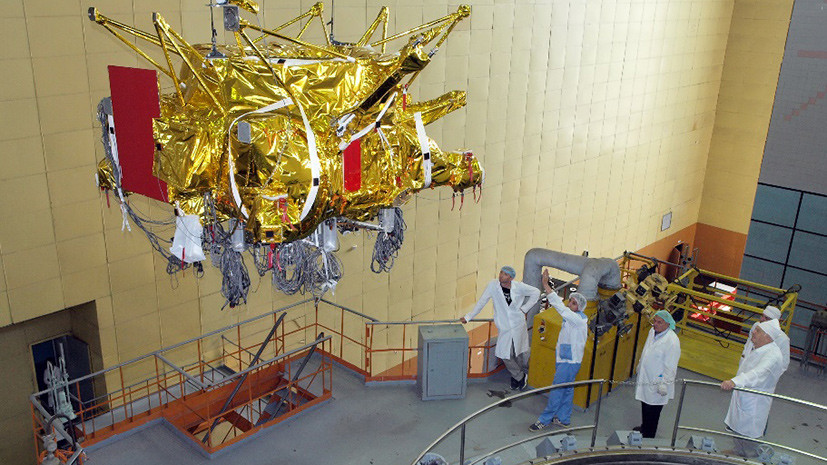The security service of "Roskosmos" detained a total of 17 people trying to infiltrate the territory of the state-owned facility. This was reported in a statement on the organization’s official website.
The first incident occurred on September 7, the press service of Roscosmos said. Then the security forces detained three people. During the trial, it turned out that they were planning illegal filming of the Research and Testing Center for the Rocket and Space Industry (SIC RCP).
“The attackers arrived to take photographs on the roof and inside the sensitive facility for further posting images on the Internet,” the Roskosmos press service said.
The detainees were transferred to the police. Investigators found that on the night of the seventh to the eighth of August, another group of people planned to enter the territory of the enterprise.
“The investigation found that ... at night, from September 7 to September 8, it was planned to infiltrate another group of up to 50 people on the territory of the Federal Targeted Center“ Scientific Research Center of the RCP ”in order to conduct vandal actions with regard to equipment and other illegal actions,” the organization’s website says .
Roscosmos security officers took appropriate measures and detained at the checkpoint and around the perimeter of the facility two, and subsequently 12 more people. All detained persons were also taken to the police, and the incident was reported to law enforcement agencies and the leadership of the state corporation.
- © FKP "SIC RCP"
"Head Testing Center"
SIC RCP tests engines and other components of space and rocket technology, including ballistic missiles. The enterprise was founded in 1949 in the city of Peresvet, Moscow Region, during the Soviet Union existed as a research institute under the state committee for the defense industry. Subsequently, it was included in the structure of the Russian Space Agency.
“Today, FKP“ SIC RCP ”is the leading testing center of Roscosmos State Corporation for bench testing of liquid rocket engines, propulsion systems using various fuel components, spacecraft tests in a thermal pressure chamber under conditions of space simulation, studies of launch vehicle launch problems and launch facilities,” - indicated on the website of the enterprise.
It also notes that the test complexes of the center have no analogues in the Russian military-space industry.
Cosmodrome East
On September 6, Russian President Vladimir Putin visited the Vostochny Cosmodrome, which is being built in the Amur Region, where he gave instructions to strictly comply with the construction schedule for the facility.
“I expect from you a more responsible attitude and a dynamic pace of work organization,” the president said at a meeting on the development of the cosmodrome infrastructure, which was attended, in particular, by the head of Roskosmos Dmitry Rogozin.
The head of state also noted that the first flights, including those using a super-heavy carrier rocket, should take place on time. Recall that the launch of the Russian superheavy Yenisei launch vehicle from Vostochny is planned for 2028.
In turn, Dmitry Rogozin assured the Russian president that the objects of the second stage of the cosmodrome will be delivered on time.
“Today we have 40 months before the end of the contract implementation period. In accordance with the developed schedule, we do not have deviations in terms today, ”TASS reports the words of the head of Roskosmos.
During the visit, the president inspected the first stage facilities already built at the spaceport. In particular, the president was shown the assembly and test buildings for the launch vehicle and spacecraft, where tests of devices, booster blocks and launch units are conducted, and the head part of the rocket is also assembled. In addition, Putin visited a transportation gallery designed to transport various components of missiles and installations from one building to another.
Rogozin noted that the already created facilities do not require any modifications and innovations and can be used to prepare for the Angara rocket flight in 2023.
Now Soyuz rockets periodically fly from the cosmodrome. The constructions of the second construction phase are designed to create infrastructure for the Angara heavy-class missiles.

